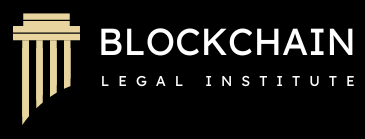When developing and implementing blockchain assessment models, several legal issues and considerations need to be taken into account, depending on the nature of the assessment and its intended use. Here are some legal issues related to blockchain assessment models that should be considered:
- Data Privacy and Protection:
- Issue: The collection and processing of data for assessment models may involve personal or sensitive information.
- Consideration: Ensure compliance with data protection regulations such as GDPR (General Data Protection Regulation) in Europe and similar laws in other jurisdictions. Obtain proper consent for data collection, and implement robust data security measures.
- Intellectual Property Rights:
- Issue: Assessment models may involve the use of proprietary algorithms, methodologies, or software.
- Consideration: Respect intellectual property rights, including patents and copyrights, when using or incorporating third-party tools or software. Clearly define ownership and licensing rights in the development of assessment models.
- Liability and Disclaimers:
- Issue: The results of assessment models may be used to make decisions, which could lead to legal liability if those decisions are based on inaccurate or incomplete assessments.
- Consideration: Include clear disclaimers and limitations of liability in the use of assessment models. Make it explicit that the models are for informational purposes and not legally binding.
- Regulatory Compliance:
- Issue: Depending on the jurisdiction and the nature of the assessment, regulatory requirements may apply.
- Consideration: Ensure compliance with relevant laws and regulations, especially in industries like finance, healthcare, and supply chain, which have specific legal requirements related to assessments and data handling.
- Transparency and Fairness:
- Issue: Assessment models should be transparent, fair, and unbiased.
- Consideration: Document and disclose the methodologies and data sources used in the assessment models. Implement fairness and bias-checking mechanisms to avoid discrimination.
- Consent and Informed Participation:
- Issue: Stakeholders or participants in assessments should be aware of and consent to their involvement.
- Consideration: Obtain informed consent from individuals or organizations participating in assessments. Clearly communicate the purpose, scope, and potential outcomes of the assessment.
- Jurisdictional Variations:
- Issue: Laws and regulations related to assessments can vary significantly between jurisdictions.
- Consideration: Tailor the assessment model and its implementation to comply with the specific legal requirements of the jurisdictions where it will be used.
- Ethical Considerations:
- Issue: Ethical concerns may arise when conducting assessments, especially in sensitive areas like healthcare or finance.
- Consideration: Develop ethical guidelines for assessment model usage and ensure that the assessments are conducted with integrity and respect for ethical principles.
It’s crucial to involve legal professionals with expertise in data privacy, intellectual property, and regulatory compliance when developing and deploying blockchain assessment models. Additionally, regularly review and update assessment models to ensure they remain compliant with evolving legal requirements and ethical standards.
